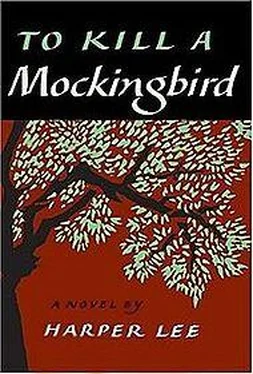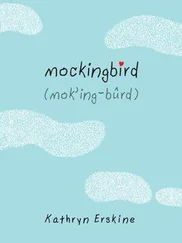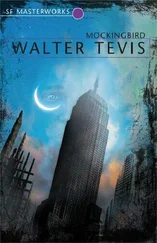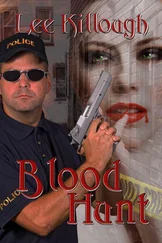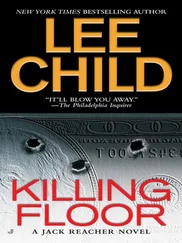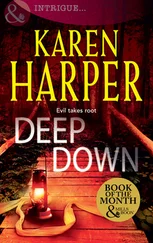Lee Harper - To Kill a Mockingbird
Здесь есть возможность читать онлайн «Lee Harper - To Kill a Mockingbird» весь текст электронной книги совершенно бесплатно (целиком полную версию без сокращений). В некоторых случаях можно слушать аудио, скачать через торрент в формате fb2 и присутствует краткое содержание. Жанр: Современная проза, на английском языке. Описание произведения, (предисловие) а так же отзывы посетителей доступны на портале библиотеки ЛибКат.
- Название:To Kill a Mockingbird
- Автор:
- Жанр:
- Год:неизвестен
- ISBN:нет данных
- Рейтинг книги:3 / 5. Голосов: 1
-
Избранное:Добавить в избранное
- Отзывы:
-
Ваша оценка:
- 60
- 1
- 2
- 3
- 4
- 5
To Kill a Mockingbird: краткое содержание, описание и аннотация
Предлагаем к чтению аннотацию, описание, краткое содержание или предисловие (зависит от того, что написал сам автор книги «To Kill a Mockingbird»). Если вы не нашли необходимую информацию о книге — напишите в комментариях, мы постараемся отыскать её.
To Kill a Mockingbird — читать онлайн бесплатно полную книгу (весь текст) целиком
Ниже представлен текст книги, разбитый по страницам. Система сохранения места последней прочитанной страницы, позволяет с удобством читать онлайн бесплатно книгу «To Kill a Mockingbird», без необходимости каждый раз заново искать на чём Вы остановились. Поставьте закладку, и сможете в любой момент перейти на страницу, на которой закончили чтение.
Интервал:
Закладка:
DEDICATION
for Mr. Lee and Alice
in consideration of Love & Affection
Lawyers, I suppose, were children once.
Charles LambPART ONE
1
When he was nearly thirteen, my brother Jem got his arm badly broken at the elbow. When it healed, and Jem’s fears of never being able to play football were assuaged, he was seldom self-conscious about his injury. His left arm was somewhat shorter than his right; when he stood or walked, the back of his hand was at right angles to his body, his thumb parallel to his thigh. He couldn’t have cared less, so long as he could pass and punt.
When enough years had gone by to enable us to look back on them, we sometimes discussed the events leading to his accident. I maintain that the Ewells started it all, but Jem, who was four years my senior, said it started long before that. He said it began the summer Dill came to us, when Dill first gave us the idea of making Boo Radley come out.
I said if he wanted to take a broad view of the thing, it really began with Andrew Jackson. If General Jackson hadn’t run the Creeks up the creek, Simon Finch would never have paddled up the Alabama, and where would we be if he hadn’t? We were far too old to settle an argument with a fist-fight, so we consulted Atticus. Our father said we were both right.
Being Southerners, it was a source of shame to some members of the family that we had no recorded ancestors on either side of the Battle of Hastings. All we had was Simon Finch, a fur-trapping apothecary from Cornwall whose piety was exceeded only by his stinginess. In England, Simon was irritated by the persecution of those who called themselves Methodists at the hands of their more liberal brethren, and as Simon called himself a Methodist, he worked his way across the Atlantic to Philadelphia, thence to Jamaica, thence to Mobile, and up the Saint Stephens. Mindful of John Wesley’s strictures on the use of many words in buying and selling, Simon made a pile practicing medicine, but in this pursuit he was unhappy lest he be tempted into doing what he knew was not for the glory of God, as the putting on of gold and costly apparel. So Simon, having forgotten his teacher’s dictum on the possession of human chattels, bought three slaves and with their aid established a homestead on the banks of the Alabama River some forty miles above Saint Stephens. He returned to Saint Stephens only once, to find a wife, and with her established a line that ran high to daughters. Simon lived to an impressive age and died rich.
It was customary for the men in the family to remain on Simon’s homestead, Finch’s Landing, and make their living from cotton. The place was self-sufficient: modest in comparison with the empires around it, the Landing nevertheless produced everything required to sustain life except ice, wheat flour, and articles of clothing, supplied by river-boats from Mobile.
Simon would have regarded with impotent fury the disturbance between the North and the South, as it left his descendants stripped of everything but their land, yet the tradition of living on the land remained unbroken until well into the twentieth century, when my father, Atticus Finch, went to Montgomery to read law, and his younger brother went to Boston to study medicine. Their sister Alexandra was the Finch who remained at the Landing: she married a taciturn man who spent most of his time lying in a hammock by the river wondering if his trot-lines were full.
When my father was admitted to the bar, he returned to Maycomb and began his practice. Maycomb, some twenty miles east of Finch’s Landing, was the county seat of Maycomb County. Atticus’s office in the courthouse contained little more than a hat rack, a spittoon, a checkerboard and an unsullied Code of Alabama. His first two clients were the last two persons hanged in the Maycomb County jail. Atticus had urged them to accept the state’s generosity in allowing them to plead Guilty to second-degree murder and escape with their lives, but they were Haverfords, in Maycomb County a name synonymous with jackass. The Haverfords had dispatched Maycomb’s leading blacksmith in a misunderstanding arising from the alleged wrongful detention of a mare, were imprudent enough to do it in the presence of three witnesses, and insisted that the-son-of-a-bitch-had-it-coming-to-him was a good enough defense for anybody. They persisted in pleading Not Guilty to first-degree murder, so there was nothing much Atticus could do for his clients except be present at their departure, an occasion that was probably the beginning of my father’s profound distaste for the practice of criminal law.
During his first five years in Maycomb, Atticus practiced economy more than anything; for several years thereafter he invested his earnings in his brother’s education. John Hale Finch was ten years younger than my father, and chose to study medicine at a time when cotton was not worth growing; but after getting Uncle Jack started, Atticus derived a reasonable income from the law. He liked Maycomb, he was Maycomb County born and bred; he knew his people, they knew him, and because of Simon Finch’s industry, Atticus was related by blood or marriage to nearly every family in the town.
Maycomb was an old town, but it was a tired old town when I first knew it. In rainy weather the streets turned to red slop; grass grew on the sidewalks, the courthouse sagged in the square. Somehow, it was hotter then: a black dog suffered on a summer’s day; bony mules hitched to Hoover carts flicked flies in the sweltering shade of the live oaks on the square. Men’s stiff collars wilted by nine in the morning. Ladies bathed before noon, after their three-o’clock naps, and by nightfall were like soft teacakes with frostings of sweat and sweet talcum.
People moved slowly then. They ambled across the square, shuffled in and out of the stores around it, took their time about everything. A day was twenty-four hours long but seemed longer. There was no hurry, for there was nowhere to go, nothing to buy and no money to buy it with, nothing to see outside the boundaries of Maycomb County. But it was a time of vague optimism for some of the people: Maycomb County had recently been told that it had nothing to fear but fear itself.
We lived on the main residential street in town — Atticus, Jem and I, plus Calpurnia our cook. Jem and I found our father satisfactory: he played with us, read to us, and treated us with courteous detachment.
Calpurnia was something else again. She was all angles and bones; she was nearsighted; she squinted; her hand was wide as a bed slat and twice as hard. She was always ordering me out of the kitchen, asking me why I couldn’t behave as well as Jem when she knew he was older, and calling me home when I wasn’t ready to come. Our battles were epic and one-sided. Calpurnia always won, mainly because Atticus always took her side. She had been with us ever since Jem was born, and I had felt her tyrannical presence as long as I could remember.
Our mother died when I was two, so I never felt her absence. She was a Graham from Montgomery; Atticus met her when he was first elected to the state legislature. He was middle-aged then, she was fifteen years his junior. Jem was the product of their first year of marriage; four years later I was born, and two years later our mother died from a sudden heart attack. They said it ran in her family. I did not miss her, but I think Jem did. He remembered her clearly, and sometimes in the middle of a game he would sigh at length, then go off and play by himself behind the car-house. When he was like that, I knew better than to bother him.
When I was almost six and Jem was nearly ten, our summertime boundaries (within calling distance of Calpurnia) were Mrs. Henry Lafayette Dubose’s house two doors to the north of us, and the Radley Place three doors to the south. We were never tempted to break them. The Radley Place was inhabited by an unknown entity the mere description of whom was enough to make us behave for days on end; Mrs. Dubose was plain hell.
Читать дальшеИнтервал:
Закладка:
Похожие книги на «To Kill a Mockingbird»
Представляем Вашему вниманию похожие книги на «To Kill a Mockingbird» списком для выбора. Мы отобрали схожую по названию и смыслу литературу в надежде предоставить читателям больше вариантов отыскать новые, интересные, ещё непрочитанные произведения.
Обсуждение, отзывы о книге «To Kill a Mockingbird» и просто собственные мнения читателей. Оставьте ваши комментарии, напишите, что Вы думаете о произведении, его смысле или главных героях. Укажите что конкретно понравилось, а что нет, и почему Вы так считаете.
